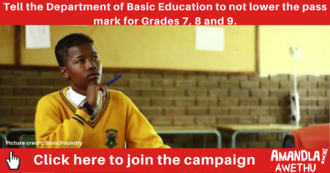- Featured
- Clean air
- Climate justice
- Consumer Rights
- Corporate Accountability
- Data access
- Early Childhood Development
- Economic fairness
- Education
- Electoral fairness
- Environmental justice
- Food justice
- Gender based violence
- Grants/social assistance
- Health
- Housing and infrastructure
- Industry interference
- Land Justice
- LGBTQIA+ rights
- Media/ information access
- Public transport
- Racism
- Reparations
- Safety
- Sanitation
- Service Delivery
- Sexual and Reproductive Rights
- Social justice
- Unemployment
- Womxn's rights/ gender equality
- Workers' rights
- More
-
24 hours to have VAT removed from more essential itemsBefore the VAT increase kicked in on 1 April 2018, National Treasury had announced that it would set up a panel of experts to consider and review the country’s current list of items that have been zero rated for VAT. We know that the VAT increase has hit the poor and those who rely on social grants, the hardest. National Treasury set up an independent expert panel to look into removing VAT from more items and is calling for submissions. But we have only 24 hours to do this. We can pressure government to review the current list of zero rated items so that we give some relief to poor households. Currently, Mzansi has 19 basic food items on the zero rated list [1]. This includes dried beans, samp, maize meal, rice, milk, tinned pilchards, brown bread, eggs and vegetables, as well as illuminated paraffin. The zero rating does not apply to items such as sanitary products, soap, stationary, margarine and school uniforms to name a few. The poor cannot live off just 19 zero rated items. Many of our leaders seem to acknowledge that the VAT increase is a problem, and we can use this moment to continue to reduce the impact of the VAT hike on the poor, while working towards holding Treasury and Parliament to account. [1] Zero-rated and exempt supplies, National Treasury website. [2] https://www.news24.com/SouthAfrica/News/treasury-calls-for-publics-input-on-adding-items-to-zero-rated-vat-list-201805171,493 of 2,000 SignaturesCreated by Amandla.mobi Member
-
Spousal Visa for LGBT CoupleWithout a spousal visa, Wendy cannot: Enroll in any institution Register for school yet she was accepted for 2017 Get formal employment Get proof of residence Apply for a driver's licence Open a bank account Travel outside of South Africa which means the couple cannot... visit her FAMILY! How can your department infringe so many rights? Nomfundo and Wendy have followed the law and procedures necessary for a spousal visa. It is not fair that their relationship is not recognized and acknowledged in the same way as a heterosexual couple. The law and the Constitution protect them. The Department of Home Affairs needs to be held accountable!1,080 of 2,000 SignaturesCreated by Nomfundo Ngidi
-
Zara pay back the money to Laduma NgxokoloMa'Afrika, Ours is a history of ongoing exploitation from white monopoly capital, and this time the brand Zara has decided to appropriate Laduma Ngoxolo's designs, by distributing his socks on their website (which they have since taken down). Despite this a small town boy, who worked extremely hard building his business in the Eastern Cape has to utilize his resources to take on an established multi-billion dollar company that tried to rip him off. Since Laduma will have to use his own resources, it is time for South Africans to come together to create a dent in the Zara wallet. Cultural appropriation and exploitation is a tale as old as time, where white capital benefits from the knowledge created in indigenous communities. Boycott all Zara stores in order to send a clear message that we will not tolerate the exploitation of our artists and our people! #BoycottZara #LocalArtMatters #LocalArtistsMatter [1] Press release from Select Committees Chairperson: https://www.parliament.gov.za/press-releases/select-committees-chairperson-welcomes-zaras-decision-remove-copied-designs [2] Press release from MaXhosa by Laduma https://www.facebook.com/MAXHOSA/posts/159243213415892134 of 100 SignaturesCreated by P M
-
Urgently restore safe access to healthcare and medicines in North West ProvinceOn Thursday health workers at the Mahikeng Provincial Hospital phoned families to come collect patients, some without medication [1]. Healthcare workers reported being threatened when reporting to work which forced even the emergency rooms to be shut down. And this isn't just happening at one hospital. Across the province health facilities haven't been functioning normally, either due to the lack of medicines or the lack of staff. This has led to many people not receiving medical care in many other hospitals and clinics. Whether in times of peace or in times of crisis, healthcare personnel should not be obstructed and hindered from accessing those in need of healthcare. Deliveries of medicines should be allowed to reach facilities. As the political solution to the crisis is being negotiated we call upon all relevant parties to urgently restore access to health services and medicines in North West Province. Please add your voice, and call on people in your networks to add theirs too. If enough of us come together, we can help make sure that lives are saved by restoring healthcare services. We will seek to meet with the Government and Health Unions this week and your Voice matters! The Stop Stockouts Project (SSP) is a consortium of six civil society organisations (TAC, SECTION27, MSF, RHAP, SA HIV Clinicians Society, RuDASA) dedicated to assisting the thousands of people whose lives are threatened by the chronic shortages of essential medicines and children’s vaccines in South Africa. The project was established in 2013, following the Mthatha depot crisis in the Eastern Cape in 2013. [1] http://bhekisisa.org/article/2018-04-19-the-price-of-suora-mahumapelos-defiance [2] https://www.spotlightnsp.co.za/2018/04/23/north-west-doctors-release-open-letter-calling-end-closure-health-services/ This project is funded by the European Union. The views reflected in this publication do not necessarily reflect the view of the European Commission.322 of 400 SignaturesCreated by StopStockOuts Project

-
Tell UNISA to include Black women on land expropriation discussionWomen in South Africa are more than 50%of the population. The issue of land is important to us as citizens with full rights in this country. Women are also thinkers, opinion leaders and represent an important an essential voice in the discourse about land in this country. It is therefore unfathomable that the panel UNISA has constituted to discuss this issue is male, with one woman panelist. It undermines the views of women in decision-making and excludes a large constituency from a critical debate in the country, consequently treating them as 2nd class citizens. We implore you to desist from this form of secondary Apartheid and victimisation of women. We are equal citizens and our input is not only important but necessary.36 of 100 SignaturesCreated by Lebogang Ramafoko
-
Support the striking Simba workers!As labour-brokered workers under Adcorp Blu, their core demand is to win their right to be made permanent workers of Simba, with better wages and benefits. Parliament changed section 198 of the Labour Relations Act in 2015 to give labour-brokered workers the right to become the permanent employees of the client companies after three months of work. ‘The majority of us workers are women,’ said worker leader Nthabiseng Shai. We want to be Simba people, but we still say Simba must fall!’ The workers are fed up with the way Simba has mistreated them to dodge and undermine the right the law gives them. ‘Some of us have been working here for more than five years,’ explained Shai. ‘They don’t want to make us permanent. They are changing us from a labour broker to another, from Adcorp Blu to FunxionO.’ The workers decided to strike when Simba again changed their employment contracts without consulting them. The Simba Workers Forum is calling on the public to support them. Please contact PepsiCo, the parent company of Simba, and tell them to give the workers permanent jobs: Call the toll free number 0800980063 This campaign is in collaboration with the Casual Workers Advice Office132 of 200 SignaturesCreated by Amandla.mobi Member
-
Tell the City of Cape Town that we reject the budget and privatization of waterCape Town is being used as an international social experiment. Yes there is a drought but 'day zero' is a deliberate lie to justify the rapid privatization of water. The City used a formula that assumed it would not rain; it assumed that it would be windy and hot every day; they failed to consider that large agriculture was abusing water; day zero was flawed from the beginning. Now the international banks are using Cape Town to threaten other cities in SA and the rest of the world, to privatize water. That is why we need to join hands to stop the privatization of water in Cape Town * over 260 000 families (almost half of Cape Town) has already had water management devices forced onto us. * these limit the amount of water that households can use per day * the city aims to change to pre-paid water; in other words, no money, no water; they have already introduced this in parts of Grabouw *currently the real cost of water provision is R6 per kl; the City has increased this by 500% and want to increase it by a further 27-87 %. They want to charge high tariffs for water so the large banks can make pots of money. *the City wants to borrow from international banks for large scale projects such as desalination; the major part of the water budget will go to desalination, about R7.4 bn. In other words, the international banks will make profits out of water. Desalination puts our water into private hands, for profits; desalinated water has caused the death rate from heart attacks to double; it also makes fruit less nutritious. * just as the national govt increased electricity prices by 20% per year, the City wants to do the same with water. * many of the water management devices (over 16%) are defective; they are leaking and shut off, leaving thousands without water for basic needs; * many are getting huge bills of thousands and sometimes hundreds of thousands of Rands. *pressure is reduced in the pipes during the times that people need water; thousands are without water. *the City and other levels of govt knew more than 10 years ago they had to adopt water saving measures such as using recycled water for sanitation; they knew they had to recycle water for recharging aquifers; they knew they had to fix the infrastructure (the City loses 100 million litres per day through leaks). They failed. If we do not stop the privatization of water, the same high tariffs and poisonous desalination will be forced on more communities in SA and around the globe. The next generations will be paying huge tariffs for water. If you have no money, you will have no water. People will die as a result. The City must be stopped. The Water Crisis Coalition is marching to the City and to parliament on the 25th April 2018 at 10am from Keizergracht , at the end of Darling Street, opposite the castle. We want to hand over all signatures and petitions. We invite you to print copies of our petition and to bring them along on the day. Copies can be obtained via [email protected] Some useful references: Proof that Day zero formula was fake: https://drive.google.com/file/d/0B2Fo95AHFCN2bGdGWU1uajRHcDMxVFZUdFFObFU4djhuWFg0/view?usp=sharing Here is the downloadable leaflet which can be used as a free train ticket on the 25th April 2018, for the march. https://drive.google.com/file/d/0B2Fo95AHFCN2aThmWFRrdHZvYUhCNXp0ejFvX3piNHU3eVRZ/view?usp=sharing Joint Saftu-Water Crisis Coalition memorandum handed to the City on our demands on water 12 April 2018 https://drive.google.com/file/d/1xLVvvmRPzUZKJWFBxwGphhGFItJF6W0-/view?usp=sharing Downloadable petition which we will hand over to the Mayor on the 25th April 2018. Why not sign up your community or workplace? https://drive.google.com/file/d/0B2Fo95AHFCN2VVQ0OWYtSGNIWkNDeXVBWk9lcDk5ZFU5MVU4/view?usp=sharing Thesis on some of the 70 springs around Table Mountain https://etd.uwc.ac.za/bitstream/handle/11394/2686/Wu_MPHIL_2009.pdf?sequence=1&isAllowed=y Now the City wants to reduce the collection points for water at Newlands from 32 to 16. Let us march against this madness. Open the springs now. https://m.facebook.com/groups/320668791777159?view=permalink&id=355469214963783 Call by Reclaim Camissa on the need to preserve our springs http://thegreentimes.co.za/calling-government-conserve-groundwater-springs/ Reclaim Camissa site www.reclaimcamissa.org www.facebook.com/RECLAIMCAMISSA/ http://twitter.com/ReclaimCamissa There are a number of other petitions against the budget. We are not in competition with any of them but wish to bring our perspective forward. If you are not comfortable with signing our petition, here is a site which you can consider: https://www.dearcapetown.co.za/coct-budget/3,441 of 4,000 SignaturesCreated by Water Crisis Coalition
-
Stop the city of Cape Town from closing the hero's backyard library.This backyard library has been one of a a few places our young brothers and sisters get a chance to complete their school assignments and also equip themselves with knowledge by reading. The library is used mostly by children from Hillview, Capricon, and Overcome Heights who otherwise would be loittering the streets with no one to help them with their studies and homework [1]. Recently, the community where this library is based, has seen ongoing violence. Community leader in this area told a local newspaper how shootings in Lavender Hill, Seawinds, St Montague Village, Hill View, Capricorn, Steenberg and Retreat have traumatic impacts on children and vulnerable adults and hpw it affects the education of the children there as it puts a lot of stress on parents going to work, and being worried about their children and their own safety [2] We must stop the dark days from falling on the children of Cape Town. Let's be their light and ask the Mayor to not shut this place of hope down. [1] https://www.iol.co.za/news/south-africa/western-cape/city-of-cape-town-shuts-down-heros-backyard-library-14258873 [2] https://www.iol.co.za/capetimes/news/lavender-hill-residents-demand-action-over-ongoing-violence-13906152203 of 300 SignaturesCreated by Aneliswa Cebekhulu

-
Better Care for HIV Positive People and their PartnersMost people living with HIV do not disclose their statuses to their sexual partners due to fear of rejection or gender-based violence. This means that the one with HIV may struggle to adhere to treatment leading to poor compliance or virological failure and the one with unknown status is at risk of HIV in case she or he is HIV negative. On the other hand, reproduction is a human right irrespective of HIV status and serodiscordant partners have no access to a program designed to assist them in safely achieving their reproductive needs. Those who want to conceive, considerations in choosing the optimal method to achieve pregnancy include transmission risk, treatment efficacy, and affordability should be prioritized. Research has proven that HIV-negative partners in serodiscordant couples are at risk of HIV infection if the index partner did not receive any intervention. Due to non-availability of assisted partner notification support for HIV positive people who want to disclose safely to their partners and safer conception services for discordant partners, people tend to keep their HIV statuses to themselves and engage in unprotected sex in order to meet their reproductive need. In 2016, World Health Organization (WHO) released self-testing and Partner notification guidelines which state that Voluntary assisted partner notification services should be offered as part of a comprehensive package of testing and care offered to people with HIV. The same year, South African National Department of Health released Health Sector HIV Prevention Strategy that focused on rendering HIV prevention service to serodiscordant couples among other services but until now, there is no guide on service delivery to HIV positive people and their partners even though the 2017-2022 NSP mentioned the need for Assisted Partner Notification and discordant partner support (including Prep). Serodiscordant couples are listed among vulnerable population on the strategy released in 2016 but other groups like truck drivers, inmates, OVC's, survivors of sexual abuse, Young women, and Girls and migrant population have programs specific for their health needs but no services to support people with HIV people and their partners. The Dukashe Family (in the picture - discordant marriage) is fortunate enough because the couple is in the health field and could afford safer conception service even though the wife struggled to disclose the status for a very long time (as most people with HIV do).158 of 200 SignaturesCreated by Mandisa Dukashe
-
Tell SAFA sponsors to ensure Danny Jordaan is suspended over rape allegationsWomen face huge barriers in pursuing justice for gender-based violence and sexual assault. For too long powerful men have used patriarchy and vast resources at their disposal to maintain a system where it is extremely difficult for women to come forward, and those who do often don’t see justice. Yet, day by day, this system which silences women is being exposed and dismantled. Jennifer Ferguson has already faced challenges coming forward with her experiences of allegedly being raped by Danny Jordaan, including being told by a Police Constable “You can’t report this! Why has it taken so long?” 3. Jennifer Ferguson alleges that when she tried to find justice through mediation outside of court in 2017, Danny Jordaan’s Advocate contacted her child’s father and “...asked if he would be prepared to come forward, off the record, to disclose anything compromising [about] my past” 4. If Danny Jordaan is so innocent, why is SAFA, the organisation he is President of, defending him? Sources [1] http://ewn.co.za/2018/03/29/safa-to-support-danny-jordaan-in-jennifer-ferguson-rape-claim [2] https://www.safa.net/2018/03/29/let-justice-take-course/ [3] https://www.dailymaverick.co.za/article/2018-03-26-jennifer-ferguson-why-ive-laid-a-rape-charge-against-danny-jordaan/#.Wr0Lp5NuY_U [4] https://www.dailymaverick.co.za/article/2017-11-01-op-ed-why-danny-jordaans-response-to-rape-allegations-insults-us-all/#.Wr0LpJNuY_U284 of 300 SignaturesCreated by amandla.mobi member

-
Provide basic services to informal settlements“When we think about using the toilet, we feel dirty. We feel like we don’t have human dignity, but we have nowhere else to live, so we just have to make the best of it. This is why we are building our own toilets.” Margret Mabene, Mzondi resident. Just recently, reports surfaced that people living in Mzondi informal settlement, Ivory Park, had started a crowdfund so that they could build toilets [1]. This desperation exists across many informal settlements that are scattered across South Africa's cities. Despite this, many people living in informal settlements are overlooked in service provision. There is a growing demand for living space around cities, and South Africa has housing backlogs. People living in informal settlements have rights. The need to grant them access to water and sanitation is a human rights issue. South Africa has the laws that force municipalities to provide basic services. Abahlali BaseMjondolo, in their Harry Gwala court case against the City of Ekurhuleni, are a good example of how people living in informal settlements have used the law to defend their rights. In this case, the people successfully argued that Ekurhuleni had a statutory obligation in terms of the Water Services Act, which requires a safe albeit temporary toilet for each stand, including in informal settlements [2]. It is important for ordinary South Africans to stand in solidarity with those who are marginalised. This is important for the advancement of justice and equity, ideals that are enshried in our Constitution. People living in informal settlements deserve dignity, like all human beings, irrespective of their material condition. [1] Community tries crowd funding to get toilets, Zoe Postman for GroundUp News. March 13, 2018. [2] The right to basic services in informal settlements: Notes on Harry Gwala High Court hearing 12 December 2008, Abahlali BaseMjondolo. Dec 15, 2008.5 of 100 SignaturesCreated by Amandla.mobi Member
-
Raise standards, don't lower pass marksBasic Education Minister Angie Motshekga proposed to lower the school pass mark for Grades 7,8 and 9 in public schools to help review the entire General Educations and Training Band (GET) phase [1]. Currently, learners who get below 50% in their home language are not allowed to progress to the next grade. A minimum pass rate of 40% means that learners will be promoted while not knowing 60% of their work content. This proposal promotes mediocrity lowers expectations for learners to progress and sets them up for failure in the future when they have to enter tertiary education and standards are higher. Government should look at improving the environment of teaching and address failing infrastructure. This is a quick-fix solution that will merely increase the number of learners who progress through school. It is common knowledge across Mzansi that classes are overcrowded. On top of that, there is an increasing expectation on parents to help their children with homework. [1] https://www.news24.com/SouthAfrica/Local/Hillcrest-Fever/are-we-setting-the-bar-too-low-2018031319 of 100 SignaturesCreated by Amandla.mobi Member
.png)
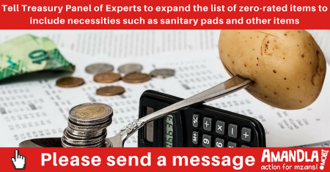
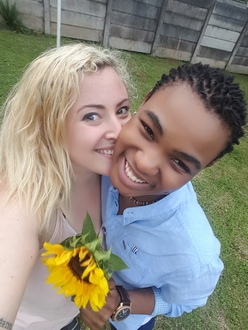

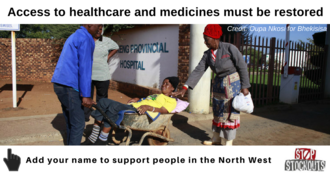
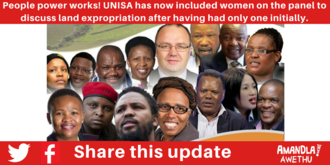.png)
.png)
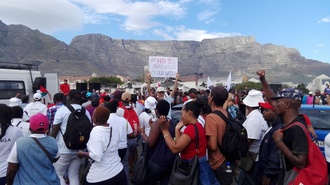
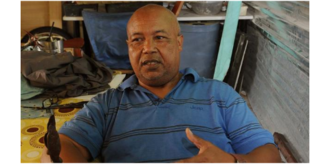
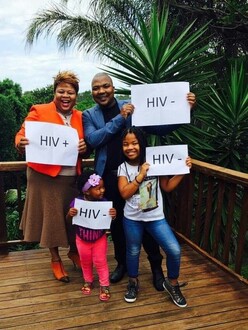
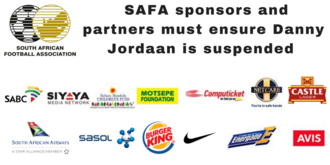.png)
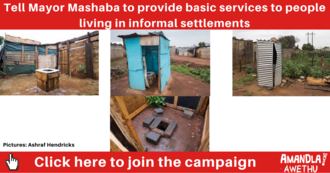.png)
